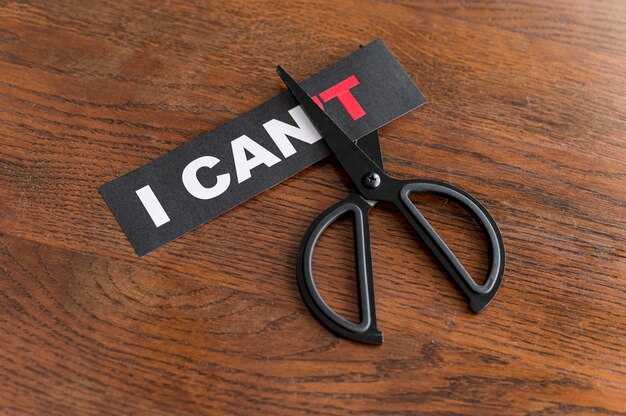One of the surest ways to slowly destroy a relationship is chronic people-pleasing. Not everyone naturally becomes a people pleaser — it often grows out of important emotional work and, more importantly, from a deep-seated fear of abandonment. Many who fall into this pattern were raised with subtle or overt neglect, taught—often without realizing it—that they were a burden who had to earn affection. That kind of upbringing makes a healthy partnership much harder to achieve. If you take away one point from this, let it be this: in the people-pleasing script, the most vital thing is that the other person stays; everything else, including your own needs, becomes second-rate. The central mission turns into giving, serving, sacrificing. Feeling drained, unappreciated, and invisible becomes for the pleaser a sign that they’re doing it correctly. Self-worth becomes tied to whether the partner seems content or loved, so don’t confuse the two. Next, treat any disagreement like an emergency to avoid at all costs. Conflict is framed as the path to distance and disconnection, so the reflex is to keep quiet—never speak up, never show vulnerability, never ask for what’s needed. That silence is easy to adopt because prior attempts to express need were often dismissed as being “too emotional” or “crazy” for wanting what most people would call basic closeness and attention. So the hurt gets buried deep, packed down and hidden—sometimes with a drink on top for “safety.” Ironically, people pleasers aren’t actually enforcing healthy boundaries; they promise themselves they will give more and more, overload themselves, swallow resentment, and then eventually explode with anger. When the outburst comes, the partner often labels them as unstable, and the cycle of shame and self-blame begins again. At the core, this behavior isn’t usually driven purely by generosity; it’s driven by fear—fear of not being lovable or worthy unless they constantly prove themselves. Too often, they are drawn to partners who are self-focused and don’t recognize their value, only realizing after the honeymoon period fades that those partners have no intention of reciprocating care or sacrifice. Fun times, indeed.
Signs you might be stuck in a people-pleasing pattern include: avoiding saying “no” even when overwhelmed, apologizing reflexively, over-explaining small choices, changing plans to accommodate others repeatedly, minimizing your feelings when you do speak up, and judging your self-worth by how others react to you. If you feel exhausted after giving, or if you replay interactions to make sure you “did it right,” those are red flags that giving has become a strategy for safety rather than an act of mutual care.
Why this damages relationships

People-pleasing undermines intimacy because it erases honest connection. A partner who never sees your real wants, limits, or discomfort cannot truly know or love the whole you. Over time, resentment builds beneath the surface and either erupts or quietly corrodes trust and attraction. Additionally, relationships that depend on one person continually sacrificing are unstable and unequal—pressuring the pleaser to perform loyalty rather than practice mutual respect.
Practical steps to change the pattern

- Start small: practice saying “no” or “not now” in low-stakes situations. Notice how people respond and what feelings arise inside you.
- Use short boundary scripts: “I can’t take that on right now,” “I’m not comfortable with that,” or “I need time to think about it.” Rehearse them out loud until they feel less foreign.
- Name your needs privately before voicing them—try journaling, which helps clarify wants without immediate judgment.
- Shift the internal question from “Will they leave me?” to “What would a healthy version of this relationship look like?” This reframes choices around mutuality instead of fear.
- Set limits on overexposure: schedule personal time, preserve emotional energy, and protect sleep and self-care as nonnegotiables.
- Practice self-compassion: remind yourself that being human includes limits and needs; needing things is not a flaw.
- Seek feedback from a trusted friend or therapist who models directness and can role-play conversations with you.
Conversation starters and phrases you can try
When you want to be direct but kind, a few simple lines can help interrupt the old reflexes:
“I hear you — I need a minute to think about that.”
“I can’t do that right now; here’s what I can do instead.”
“I feel [brief emotion]; I’d like us to find a solution that works for both of us.”
“I’m setting a boundary around [topic] because I need to protect my energy.”
When to get professional support or consider safety
Therapy—especially approaches that focus on attachment, cognitive-behavioral patterns, or family-of-origin work—can be very effective. A therapist can help you unlearn people-pleasing strategies, build assertiveness, and process the fear beneath them. If your partner reacts to your attempts at healthy boundaries with threats, escalation, belittling, or violence, prioritize your safety: contact trusted supports, create an exit plan if needed, and reach out to local domestic violence resources. Changing people-pleasing is courageous work; you deserve support and protection while you do it.
Changing the script from constant giving to honest connection takes time and patience. Expect setbacks, not failure. Each small assertion of your needs reinforces that you matter intrinsically, not because you earned someone’s approval. Over time, clearer boundaries will either invite genuine reciprocity into your relationships or show you when to walk away from partnerships that never intended to meet you halfway.
How to Stop: Setting Boundaries and Rebuilding Authentic Relationships
Pause for 24 hours before agreeing to favors: say, “I need 24 hours to check my schedule and decide.” Track responses and refuse if the request costs your values or time budget.
Define three non-negotiables and write them where you see them daily (work time, sleep, personal projects). Use those criteria to evaluate any request within 10 seconds: keep, delay, or decline.
Use precise, short scripts. For a favor: “I can’t take that on right now. I can help for one hour on Saturday or suggest someone else.” For family pressure: “I want to be present, but I won’t discuss X tonight. Let’s revisit this next week.”
Practice “I” statements during weekly role-play with a trusted friend or coach: “I feel overwhelmed when I take on extra tasks, so I won’t accept them this week.” Repeat each script 10 times aloud; measure comfort on a 1–10 scale before and after.
Set measurable limits: limit unpaid favors to two per week, cap social calls at 90 minutes per day, and block three 90-minute creative or recovery slots per week on your calendar. Review compliance every Sunday.
When someone pushes back, name the effect and state the consequence: “When you insist, I feel drained. If this continues, I’ll end the call after 10 minutes.” Then follow through. Consistent consequences teach others how to treat you.
Repair relationships damaged by past people-pleasing with brief accountability and clear requests: admit the pattern, state the new boundary, and offer a concrete alternative. Example: “I used to say yes too often. I can’t help moving that day, but I can pack boxes on Sunday.”
Run a four-week experiment: Week 1 – list values and create three non-negotiables; Week 2 – use scripts in low-stakes settings and log reactions; Week 3 – enforce limits with close contacts and adjust consequences; Week 4 – review outcomes and decide which relationships to invest in.
Measure progress with two metrics: resentment (daily 1–10 rating) and “yes” frequency (count weekly). Aim to drop resentment by 3 points and reduce “yes” count by 50% after four weeks. Use a simple spreadsheet or notes app.
Protect energy with technology rules: silence notifications during boundary blocks, reply within 48 hours only to non-urgent requests, and set an automatic message: “I respond to non-urgent requests within 48 hours.” Check the message’s effect after two weeks and adjust timing if needed.
Choose three relationships worth rebuilding and allocate focused effort: schedule one 45-minute conversation per relationship to explain changes, ask for their expectations, and negotiate mutual terms. Document agreements and revisit after one month.
Seek support if patterns persist: book one session with a therapist or an assertiveness workshop, and commit to two practice sessions per week. Track behavioral shifts and report progress to your accountability partner every Sunday.


 Πώς να ευχαριστήσεις τους ανθρώπους, ώστε να καταλήξεις μόνος">
Πώς να ευχαριστήσεις τους ανθρώπους, ώστε να καταλήξεις μόνος">

 Relationship EXPERT αποκαλύπτει Μυστικά για τη Σύνδεση: Dr. Sue Johnson">
Relationship EXPERT αποκαλύπτει Μυστικά για τη Σύνδεση: Dr. Sue Johnson">
 Are You Surrounded by Bullies? The Hidden Reason You Let Them In">
Are You Surrounded by Bullies? The Hidden Reason You Let Them In">
 Your Partner’s Behavior is Trauma-Related, But It’s Still Not OK">
Your Partner’s Behavior is Trauma-Related, But It’s Still Not OK">
 The STRONGEST Sign An Avoidant Still Loves You Deeply">
The STRONGEST Sign An Avoidant Still Loves You Deeply">
 If You Shut Down During Conflict, Watch This">
If You Shut Down During Conflict, Watch This">
 Αν ο/η σύντροφός σας λέει αυτές τις φράσεις, είναι αποφευκτικός/ή">
Αν ο/η σύντροφός σας λέει αυτές τις φράσεις, είναι αποφευκτικός/ή">
 Μέχρι που αυτή η μία αλλαγή έφερε τελικά πίσω τον αποφεύγοντα | Mel Robbins Motivational Speech">
Μέχρι που αυτή η μία αλλαγή έφερε τελικά πίσω τον αποφεύγοντα | Mel Robbins Motivational Speech">
 Για τη Θεραπεία, η Συνήθης Δράση είναι Πιο Ισχυρή από τις Λυπητερές Ιστορίες">
Για τη Θεραπεία, η Συνήθης Δράση είναι Πιο Ισχυρή από τις Λυπητερές Ιστορίες">
 A Partner Needs to Know About Your Past — But What If You’re Just Dating?">
A Partner Needs to Know About Your Past — But What If You’re Just Dating?">
 Η ΑΠΑΤΗ είναι για ΕΓΩΙΣΤΙΚΟΥΣ ΔΕΙΛΙΑΣ (όπως εγώ)">
Η ΑΠΑΤΗ είναι για ΕΓΩΙΣΤΙΚΟΥΣ ΔΕΙΛΙΑΣ (όπως εγώ)">